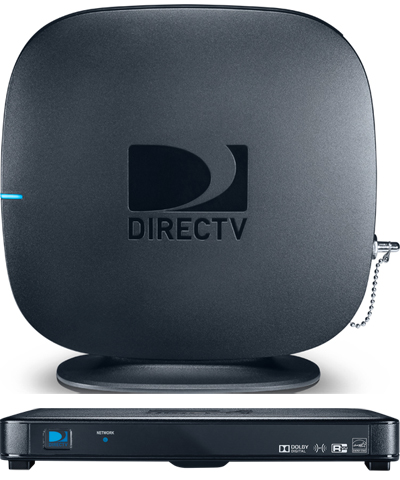

- DIRECT TV COST 1 SERVER 2 WIRELESS CLIENTS 1 WIRED CLIENT HOW TO
- DIRECT TV COST 1 SERVER 2 WIRELESS CLIENTS 1 WIRED CLIENT UPGRADE
- DIRECT TV COST 1 SERVER 2 WIRELESS CLIENTS 1 WIRED CLIENT MAC
Generally, when you use multiple Wi-Fi broadcasters like in the case of a mesh network, there are two types of connections: fronthaul and backhaul.įronthaul is the Wi-Fi signal a mesh hub broadcasts outward for clients or its network ports for wired devices. (That’s always been the case before Wi-Fi 7, which might work differently.)

I will talk more about the necessary hardware units below.Ī Wi-Fi connection between two direct devices takes place in a single band, using a fixed channel, at any given time. So, think of a mesh when there are areas in your home the current Wi-Fi broadcaster can’t reach. Or, more specifically, a single router placed near the center is better than getting a mesh.īut this depends a lot on the layout of your home, the number of walls, where you place a broadcaster, etc.

Generally, if your place is 1800 ft 2 (167 m 2) or smaller, you probably only need a standalone router. It’s hard to say precisely when a mesh is in order. And using multiple broadcasters in close proximity can be a bad thing. Other than the coverage, a Wi-Fi system doesn’t solve whatever problems you might have with a single router of the same specs and feature set.
DIRECT TV COST 1 SERVER 2 WIRELESS CLIENTS 1 WIRED CLIENT UPGRADE
So, a mesh is not an upgrade to a single broadcaster - it’s a necessary alternative. In other words, more is not necessarily better. Generally, it’s best to have just one broadcaster in a home to avoid interference. When do you need a mesh?Ī mesh applies to large homes or offices where a single broadcaster (router) doesn’t deliver enough Wi-Fi coverage. Just because you have multiple Wi-Fi broadcasters in a single network doesn’t necessarily mean you have a mesh system - more below. Nowadays, using network cables as the backhaul link is commonplace - and it’s also the only way to get the best performing mesh system, as you’ll learn more below. The term “mesh” originally applied only to broadcasters linked together wirelessly. I like it.Ī mesh consists of multiple hardware Wi-Fi broadcasters (routers, access points, etc.) that work together to form a single unified Wi-Fi network. Read this Best Home Mesh Brands in Brief: AiMesh, Deco, eero, Orbi, Velop, and MoreĪ mesh Wi-Fi system has more names than those mentioned above, but “mesh” is a short and sweet moniker. I detailed that in a little brief history in this post of popular mesh brands. Since then, there’s been a home mesh revolution with Wi-Fi systems coming out from virtually all networking vendors. Mesh has been around for a long time, but it became a big deal when a company named eero - all lowercase - announced the original eero Wi-Fi System in February 2016. Mesh Wi-Fi system explained: It’s more than lumping a bunch of routers together
DIRECT TV COST 1 SERVER 2 WIRELESS CLIENTS 1 WIRED CLIENT HOW TO
DIRECT TV COST 1 SERVER 2 WIRELESS CLIENTS 1 WIRED CLIENT MAC
Extra: Extender and virtual MAC address issues.Non-mesh Wi-Fi broadcasters: Extenders vs access points.Mesh Wi-Fi system explained: It’s more than lumping a bunch of routers together.


 0 kommentar(er)
0 kommentar(er)
